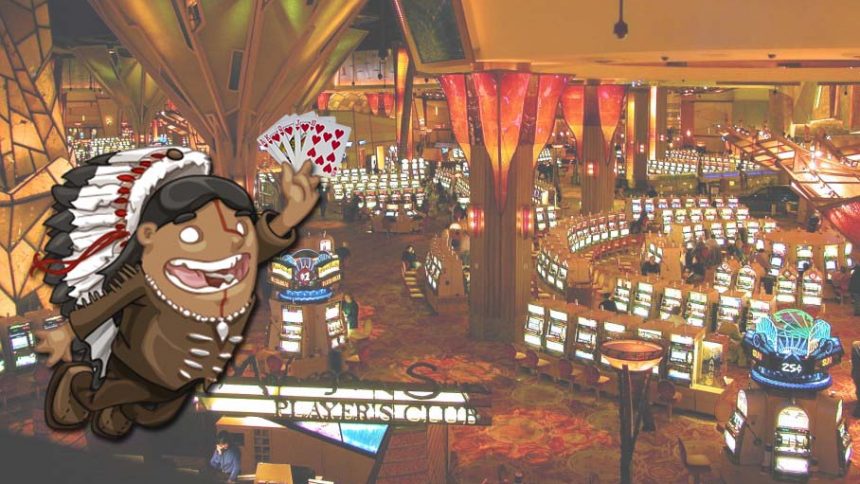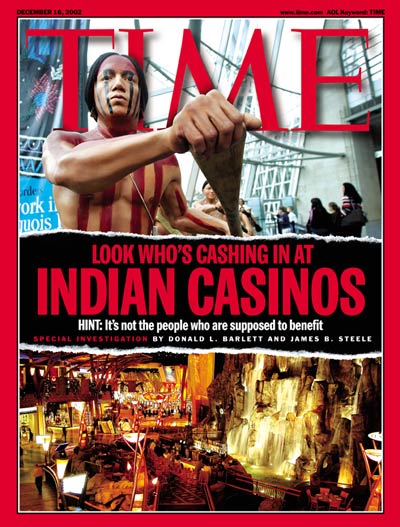Are All Casinos on Indian Reservations? Gambling, Sovereignty, and the Complicated Truth
Are All Casinos on Indian Reservations? Gambling, Sovereignty, and the Complicated Truth

The allure of the casino floor is undeniable. The flashing lights, the clinking of coins, the anticipation of a big win – it’s a world of excitement and possibility. But have you ever stopped to think about where all these casinos are located? You might have heard the phrase "Indian casinos" thrown around, and it’s easy to assume that all casinos on tribal lands are the same. But is that actually true?
Well, it’s not as simple as a yes or no answer. The relationship between casinos and Native American reservations is complex, interwoven with history, law, and a whole lot of politics. Let’s dive into the fascinating world of tribal gaming and unravel the truth behind this common misconception.
Related Articles: Are All Casinos on Indian Reservations? Gambling, Sovereignty, and the Complicated Truth
- Uncover the Native American Tribes of Oklahoma: A Journey of Discovery
- Beyond The Casino: Uncovering The Rich History And Culture Of San Diego’s Indian Reservations
- Uncover the Enigmatic Landscape of Indian Reservations in Oklahoma: Unveiling History and Significance
- Discover the Vibrant World of Indian Tribes in New Mexico Today
- North Dakota’s Tribal Lands: A Map Of Resilience And Culture
A History of Sovereignty and Self-Determination
To understand why casinos are so prevalent on reservations, we need to rewind the clock a bit. Native American tribes in the United States have a unique legal status: they are sovereign nations. This means they have the right to govern themselves and their lands, separate from federal and state governments. This sovereignty, however, has not always been respected. For centuries, Native Americans faced systematic oppression and dispossession, their cultures and traditions under constant threat.
The Indian Gaming Regulatory Act (IGRA) of 1988 was a landmark piece of legislation that aimed to address this historical injustice. It recognized the right of tribes to operate gaming activities on their lands, providing a path for economic self-sufficiency and a chance to reclaim some of their lost autonomy. This act was a game-changer, offering a way for tribes to create jobs, generate revenue, and invest in their communities.
The Rise of Tribal Casinos
Following the passage of IGRA, the landscape of gaming in the United States changed dramatically. Tribes across the country began to explore the potential of casino development, seeing it as a means to improve their economic standing and secure their future. This led to a boom in the construction of casinos on reservations, creating a vibrant industry that has had a profound impact on Native American communities.
But it’s important to remember that IGRA wasn’t a blank check for unrestricted gambling. It established a framework for tribal gaming, setting specific guidelines and regulations. The Act allowed for three classes of gaming:
- Class I: Traditional social games with minimal prizes, such as bingo and poker tournaments.
- Class II: Games of chance, like slot machines and electronic bingo.
- Class III: Games typically found in commercial casinos, including blackjack, roulette, and slot machines.

The type of gaming allowed on a reservation is determined by a complex process involving negotiations between the tribe, the state, and the federal government. This process can be lengthy and challenging, with various factors influencing the outcome.
Not All Casinos Are Created Equal

Now, let’s get back to the original question: are all casinos on Indian reservations? The short answer is no. While many casinos are located on tribal lands, not all casinos are owned or operated by tribes. There are plenty of commercial casinos owned by private corporations that operate outside of reservation boundaries.
It’s also worth noting that not all tribes have casinos. Some tribes have chosen not to pursue gaming, either due to cultural or religious beliefs, or simply because they don’t see it as a viable option for their community. Others may have faced legal challenges or political obstacles that prevented them from establishing casinos.
The Complexities of Tribal Gaming
The world of tribal gaming is far from simple. It’s a fascinating mix of cultural heritage, legal frameworks, economic realities, and social issues. Here are some key points to consider:
- Economic Impact: Tribal casinos have generated billions of dollars in revenue, creating jobs, funding essential services, and improving the quality of life in many Native American communities. They’ve also become significant contributors to state and local economies.
- Cultural Considerations: Some tribes view gaming as a potential threat to their cultural identity, fearing it could lead to increased social problems like addiction and crime. Others see it as a way to revitalize their traditions and celebrate their heritage.
- Legal Battles: The relationship between tribes and states over gaming has often been contentious, with legal battles over jurisdiction and revenue sharing. These disputes highlight the ongoing struggle for tribal sovereignty and self-determination.
- Social Issues: The presence of casinos on reservations has raised concerns about potential negative social impacts, including increased gambling addiction, crime, and economic dependence. However, many tribes have implemented measures to mitigate these risks, such as responsible gaming programs and community development initiatives.

The Future of Tribal Gaming
The future of tribal gaming is uncertain, shaped by evolving legal landscapes, changing social attitudes, and the ever-evolving nature of the gaming industry. However, one thing is clear: tribal casinos are here to stay, playing a significant role in the economic and social lives of Native American communities. As we move forward, it’s important to approach this complex topic with sensitivity, understanding, and a commitment to supporting the rights and self-determination of Native American tribes.
FAQ: Are All Casinos on Indian Reservations?
Q: Why are casinos often located on Indian reservations?
A: Casinos are often located on Indian reservations because of the Indian Gaming Regulatory Act (IGRA) of 1988, which recognized the right of tribes to operate gaming activities on their lands. This act allowed tribes to pursue economic self-sufficiency and exercise their sovereignty.
Q: Are all casinos on reservations owned by tribes?
A: No, not all casinos on reservations are owned by tribes. Some are owned by private corporations that have partnered with tribes. However, the majority of casinos on reservations are owned and operated by tribal governments.
Q: Do all tribes have casinos?
A: No, not all tribes have casinos. Some tribes have chosen not to pursue gaming due to cultural or religious beliefs, or simply because they don’t see it as a viable option for their community. Others may have faced legal challenges or political obstacles that prevented them from establishing casinos.
Q: What are the benefits of tribal casinos?
A: Tribal casinos have generated billions of dollars in revenue, creating jobs, funding essential services, and improving the quality of life in many Native American communities. They’ve also become significant contributors to state and local economies.
Q: Are there any concerns about tribal casinos?
A: Yes, there are concerns about potential negative social impacts of tribal casinos, such as increased gambling addiction, crime, and economic dependence. However, many tribes have implemented measures to mitigate these risks, such as responsible gaming programs and community development initiatives.
Q: What is the future of tribal gaming?
A: The future of tribal gaming is uncertain, shaped by evolving legal landscapes, changing social attitudes, and the ever-evolving nature of the gaming industry. However, one thing is clear: tribal casinos are here to stay, playing a significant role in the economic and social lives of Native American communities.
Conclusion
The question of whether all casinos are on Indian reservations is a complex one, with no easy answer. The relationship between gaming and Native American tribes is a fascinating and multifaceted story, intertwined with history, law, culture, and economics. While it’s true that many casinos are located on reservations, it’s important to remember that not all casinos are owned by tribes, and not all tribes have casinos. This is a topic that deserves careful consideration and nuanced understanding, recognizing the unique challenges and opportunities faced by Native American communities in the world of gaming.

Closure
Thus, we hope this article has provided valuable insights into Are All Casinos on Indian Reservations? Gambling, Sovereignty, and the Complicated Truth. We hope you find this article informative and beneficial. See you in our next article!